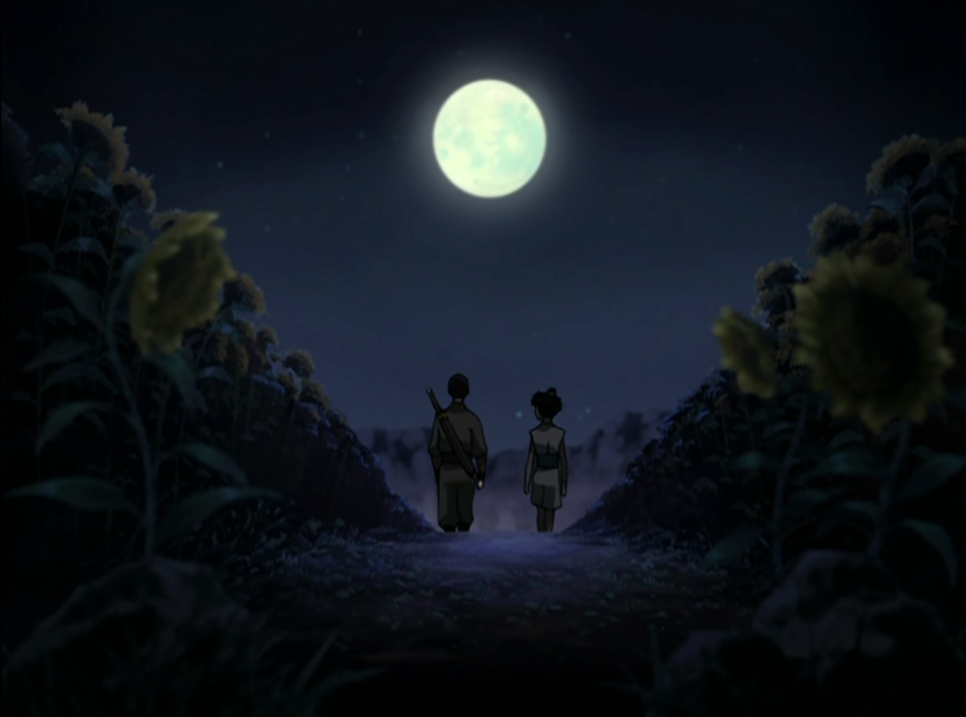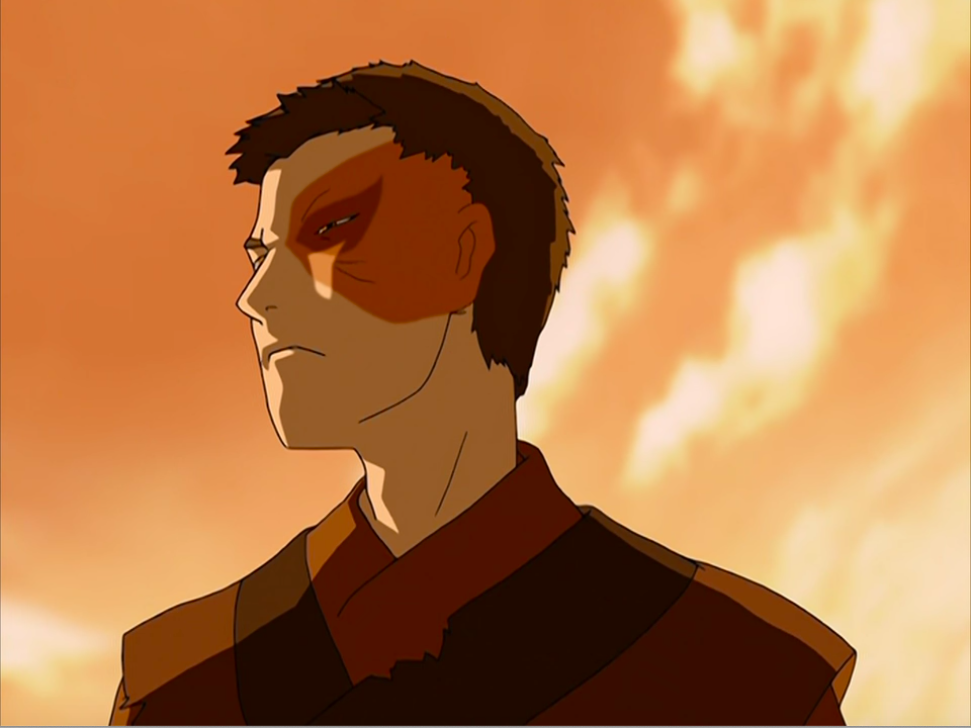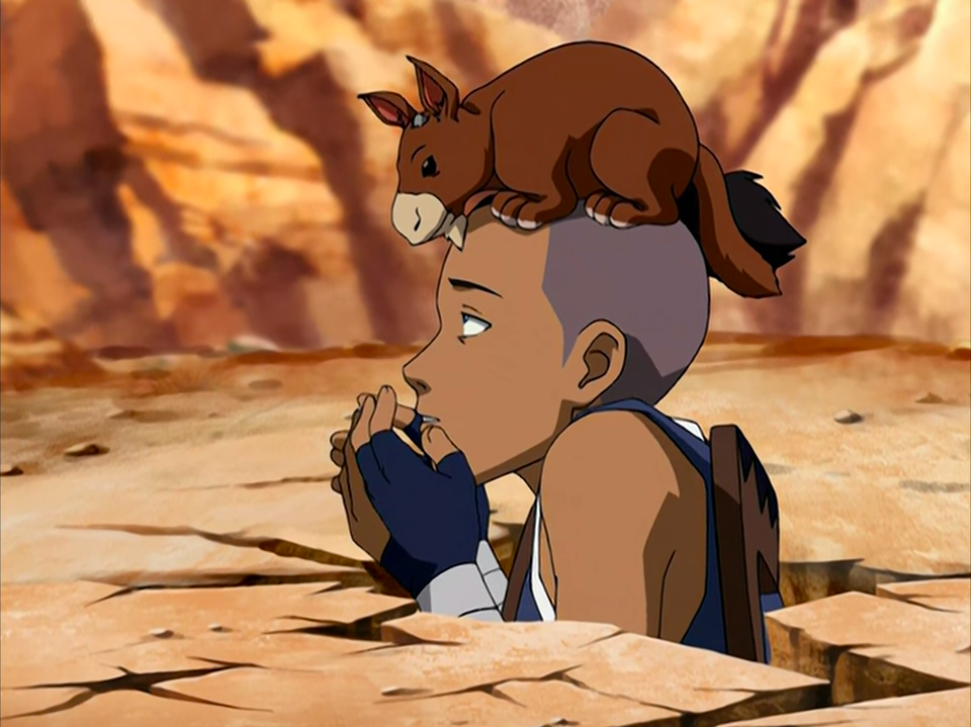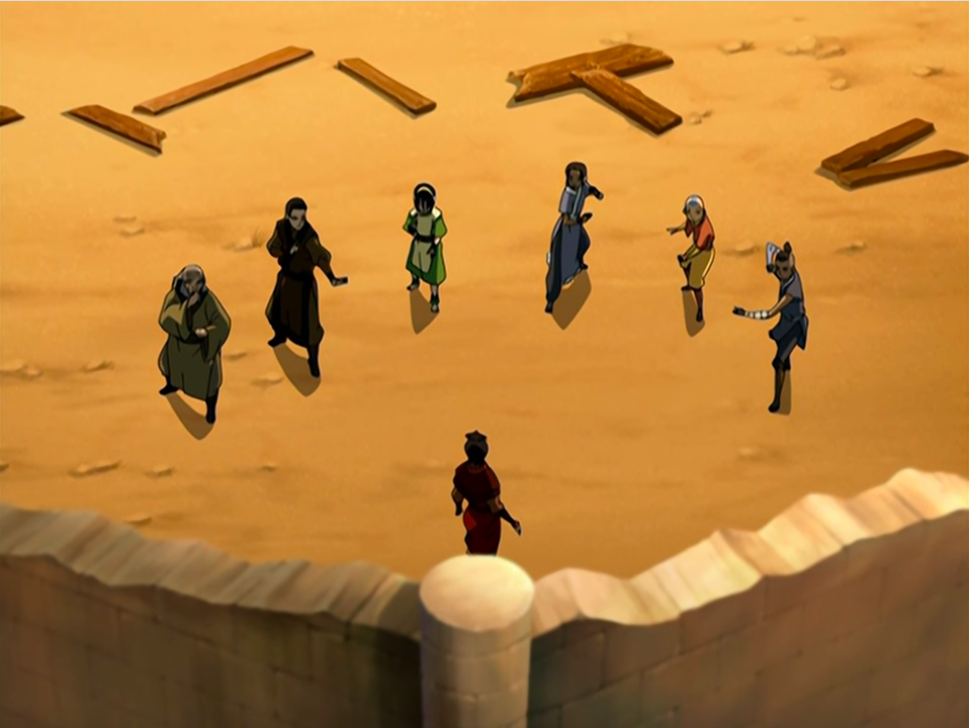Avatar: The Last Airbender: "Chapter Seven: Zuko Alone," "Chapter Eight: The Chase," and "Chapter Nine: Bitter Work"
In which the show matures

(This is the eleventh installment of my weekly recaps of Avatar: The Last Airbender, the Nickelodeon animated series that ran from 2005 to 2008 to much critical acclaim. I’ve never seen it! These recaps are only available to paid subscribers.)
“Chapter Seven: Zuko Alone” (originally aired May 12, 2006)
“Chapter Eight: The Chase” (originally aired May 26, 2006)
“Chapter Nine: Bitter Work” (originally aired June 2, 2006)

"Zuko Alone" and "The Chase" are far more mature episodes than anything else Avatar: The Last Airbender has tried to this point, particularly "Zuko Alone," which almost feels like it's beamed in from another show entirely. When I say "more mature," I suspect some readers will take that to mean "more serious" and quibble with my declaration. After all, the last few episodes of season one are crammed with big, serious moments, and the two-part finale is pretty remarkable for just how far it goes in telling a fundamentally dramatic story about the sacrifices we all need to make for the greater good.
But I would argue those episodes still largely exist within the show's previous framework of "thoughtful kids show that nevertheless imparts moral lessons each week." To be clear, there's nothing wrong with this form of storytelling, and Avatar does it well, especially toward the end of its first season and the start of its second. But it is a storytelling form that necessarily carries certain limitations in how complex its characters and world are allowed to be. It might be serious, but it's also inherently immature, limited by the perspective a child would necessarily have.
My hair-splitting between "most serious" and "most mature" might feel a little forced to some of you, but I also think if you let "The Blind Bandit" — an extremely entertaining episode of the show Avatar used to be — roll right over into "Zuko Alone," you would immediately see what I mean all the same. Something has changed. What isn't immediately clear.
Poke around a little inside of these episodes (and, again, especially "Zuko Alone"), and you'll find that the series is positioning itself firmly within a rich tradition in fiction aimed at children and teens: the series that grows up alongside its audience. The two most famous examples of this that surely must have influenced Avatar are the Harry Potter series (J.K. Rowling, boo, hiss) and Buffy the Vampire Slayer (Joss Whedon, boo, hiss). In both of those earlier series, what started as fundamental larks grew deeper as their narrative arcs continued across seven installments. Harry, Ron, and Hermione grew toward adulthood and realized problems didn't have easy answers; Buffy had to embrace everything from her destiny to sudden motherhood.
Narrative motifs from both series are scattered all over Avatar, but especially Buffy. (Sokka might as well be named Xander in certain episodes.) And the rapid maturation that Avatar has undergone in season two is very similar to the turn Buffy underwent at a similar point in its run. In one episode, Buffy and her friends were gearing up to face off with evil and in the next, evil wore the face of her boyfriend. It could be a little clunky, but it was undeniably effective.
It's really not hard to look at the first few episodes of Avatar season two and see the same dynamic at work. The characters are quickly learning there are no easy answers, and they're realizing that even their worst enemies have complex motivations. Jess (the 9-year-old girl who lives in my head and who sometimes takes over these recaps) had no idea what to make of "Zuko Alone," but then, she wouldn't. She loved the clear-cut moral universe of the show's first 26 episodes, and just like that, the series was pushing her into the deep end.

If I were to split hairs even further on this question, I would say the difference between a serious story for children and a mature story for children is that a serious story understands that doing what is right isn't always easy, while a mature story understands that knowing what is right isn't always easy. And actually turning a serious story for kids into a mature one is rarely attempted. The handful of times it's actually been accomplished almost all have to do with the willingness of the artist to introduce some degree of moral complexity, wedded to a distributor willing to nestle that kind of storytelling alongside fare that might acknowledge doing the right thing can be hard but rarely allows for anything much more complicated than that. Which is to say, I have no idea what it must have felt like to just have this season of television start unspooling on Nickelodeon (of all places) in 2006, but it must have felt seismic.
So credit for the show's growing complexity is surely owed to the writers for digging into their characters and what makes them tick. But some credit must also go to Nickelodeon for letting the writers go to darker and more nuanced places after the first season was such a hit. The series could have run forever (quite successfully!) in that season one mode. That it didn't was at least a small risk on the part of its network.
On the other hand, the character of Zuko's mere existence probably made the maturation of the show's storytelling inevitable. On its face "my enemy is also a person" isn't necessarily a full-on invitation to more mature storytelling in children's media. There are tons of stories for kids and adults that understand a villain can have completely understandable motivations and can even be a sympathetic figure in some right, while still reminding us constantly that said villain is bad. (The Marvel Cinematic Universe has basically turned this into a full-on trope at this point.)
But Avatar spent a lot of time and attention getting Zuko just right, even in the early going. His motivations were understandable, his emotional reactions to things were complex, and his back-story was sympathetic. But the show was always careful to keep his humanity on the "bad guy" side of its divide. Even in season two, as his journey has carried him further away from being Aang's direct antagonist, he's still driven by a kind of monomaniacal quest to get his place at his father's side back, even as he surely realizes his father never wanted much to do with him in the first place.
"Zuko Alone" instantly complicates that math. The show has laid the groundwork to make it clear to us that he's more than just "the villain," so when he wanders into a small village in the Earth Kingdom and befriends a young boy, we're totally willing to see him as a Shane cosplayer. But as the episode continues and the bond with the kid grows ever stronger, we're lulled into a place where we, ideally, forget who Zuko is. When he finally has to save the kid by using his firebending, thus revealing his identity, it carries a weight of awful inevitability. That the show makes you kinda, sorta forget that Zuko isn't its protagonist is honestly a little bit magical.

But it's also counterbalancing the action in the present with flashbacks to Zuko's life in the Fire Nation as a prince. In the process, it adds depth to Iroh (who lost a son) and gives us a better sense of Zuko and Azula's sibling rivalry. It also adds a tragic disappearance (and probably death) for Zuko's mother, which is a little cliché as a back-story element, but I'll give the show this one.
None of this radically changes the show's world. The Fire Nation is still bad. The Earth Kingdom is still put-upon. There are still good and bad guys on a global scale, because this is, after all, a show aimed at younger people and not, like, a treatise on the failures of capitalism or something. But the show has now firmly staked its claim on telling stories about complicated individuals with complex motivations that drive them to do the things they do. "Zuko Alone" wasn't the only episode to help it make this leap, but it's the episode where you most easily realize that it made the leap several episodes ago, when you were distracted by something else.
"The Chase" isn't as complex, but it allows for greater shades in our central trio, and it brings the season's full ensemble crashing together for the first time. Adding Toph to Team Avatar is a great move, because she's a character (as I argued last week) who fills in gaps in the group you didn't realize were there, then drives conflict from how handily she fills said gaps. In particular, her mere presence has sharpened Katara considerably, and I do hope the two become best friends. (I suspect this won't happen too easily, alas.)
"The Chase" practices a different kind of maturation, too, simply through its plotting. Where the show often scatters its characters across different storylines, in "The Chase," all of the members of its ensemble are caught up in Azula's cover version of Battlestar Galactica's "33," as her monstrous machine chases after Aang and company when all they really want to do is sleep. Within its 24 minutes, so many things happen, and you never once feel like you don't understand why something is happening. This, too, is a form of complexity. Allowing for that many stories to dovetail and dart and weave in and out of each other is something a show can't do right off the bat. It has to build to that kind of storytelling, too, and "The Chase" shows that it's ready to do so.
Then "Bitter Work" is really cute but also an example of the show playing in a key it already knows quite well. It works well as a "Here's how Toph fits into the gang" episode, but mostly as that.
I love television because of time, not because of change. I love that if you watch a show long enough, it will slowly reveal new secrets to you and the changes it undergoes will feel inevitable to you, like the show isn't really changing but the ways in which you see it are changing. Across the first half of its second season, Avatar: The Last Airbender is finally becoming the kind of show I adore. It's not just a show that takes itself seriously when it needs to. It's a show that understands there is a big difference between seriousness of intent and maturity of approach. It is not yet all the way there, but it has taken so many big strides in the second season that I'm all but certain it will get there.

Other thoughts I thought:
- Look, if Aang and company don't want Azula to track them down, have they considered simply shaving Appa??
- The design elements of Azula's girl gang all rule, and it continues to baffle me that this series wasn't intended to launch a toy empire. If I were a 7-year-old girl watching this show, I would so want a toy version of those lizards that Azula and her friends ride around on.
- I don't have a ton to say about "Bitter Work," but that little cow friend that Sokka makes should obviously become a new main cast member.
- Zuko yelling at the lightning to just strike him dead where he stands is pretty metal, tho.
- As an extremely messy type-A woman (we exist!), I refuse to take sides in the Katara/Toph debate. I think they both have good points, and what's important is that they find compromise.
Next week: We're dropping back to just two episodes for the next few weeks, as I'm assured the next stretch of episodes is full of straight-up classics. So join me next week for the two-part midseason finale, "The Library" and "The Desert." My understanding is that nothing bad happens to Appa.



